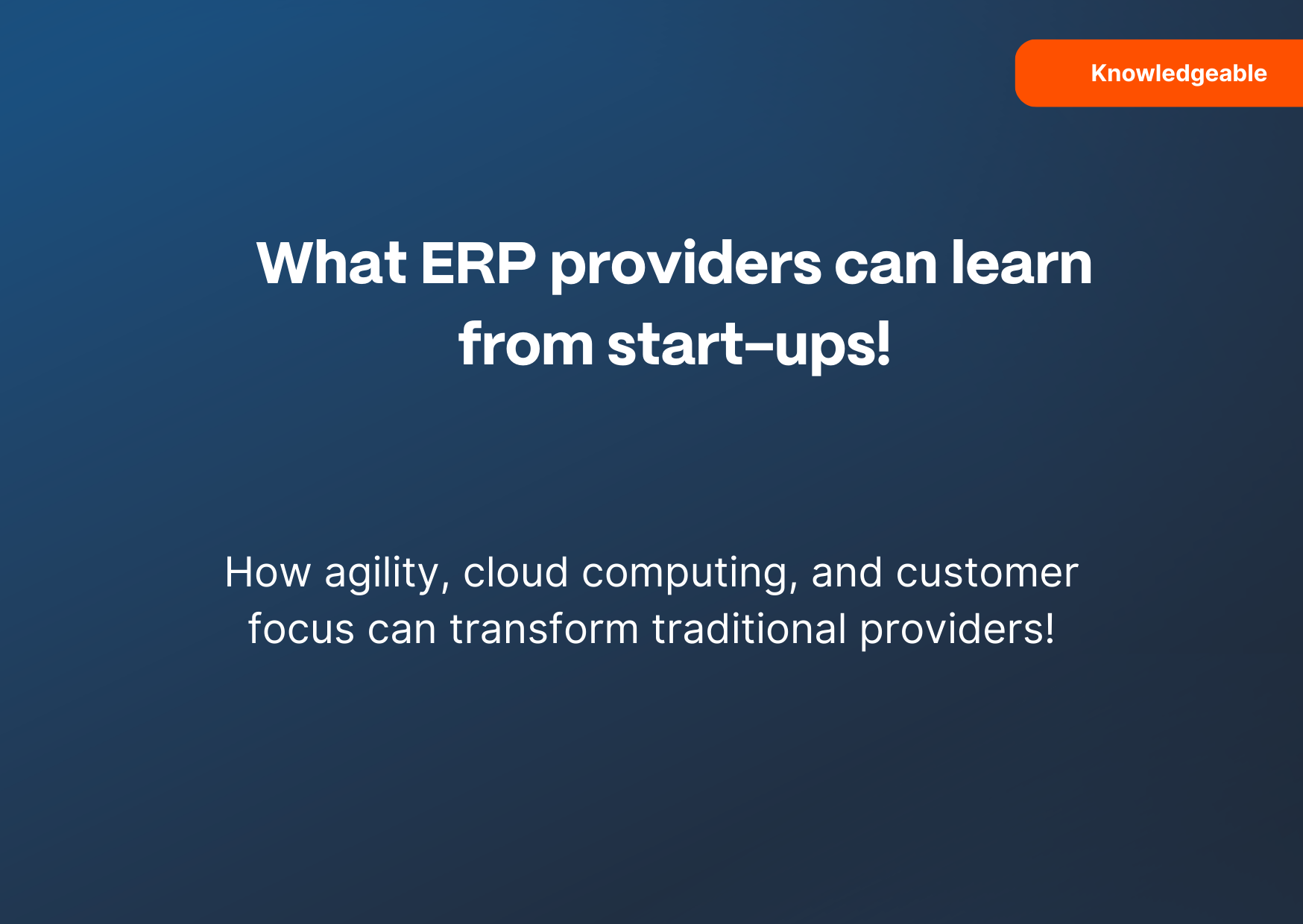
At a time when digital business models are growing exponentially, even established ERP providers are under pressure to make their solutions more flexible, user-centric, and faster to scale. While enterprise resource planning systems were traditionally developed for large companies, the innovative strength of many startups shows how agility and customer focus can be used strategically. But what exactly can ERP providers learn from startups—and how can this knowledge be transferred to the further development of ERP solutions?
Startups operate with lean structures and iterative development processes. In contrast to rigid waterfall models, they rely on agile methods such as Scrum or Kanban to respond quickly to market changes. For ERP providers, this means that instead of monolithic releases, modular updates and cloud-native architectures can create a clear competitive advantage.
Many ERP systems have evolved over time and are complex to use. Startups, on the other hand, place the user at the center of value creation. Intuitive interfaces, personalized dashboards, and mobile-first approaches are standard there. ERP providers can learn from this by viewing the user experience (UX) not as a side issue, but as a strategic differentiator.
Startups know that time is of the essence. Long project cycles jeopardize market entry. That's why they rely on minimum viable products (MVPs) that can be implemented quickly and improved incrementally. ERP providers could take a similar approach by offering preconfigured industry templates, thereby drastically reducing the time to value of their solutions.
Startups build their systems almost exclusively on a cloud basis, with a focus on scalability, integrations, and automation. An API-first approach makes it possible to seamlessly integrate third-party applications and create ecosystems. For ERP providers, this means moving away from closed systems toward open platforms that can be dynamically adapted to customer needs.
In addition to technology, the entrepreneurial mindset also plays a role. Startups promote a culture of error in which experimentation is encouraged and learning from failure is part of their DNA. ERP providers can establish similar structures through internal innovation programs, hackathons, or co-creation with customers, thereby continuously optimizing their products.
The ERP market is undergoing change. Today, companies expect not only functional diversity, but also flexibility, short implementation times, and user-friendly interfaces. ERP providers can learn from startups how to develop technologies in a consistently customer-centric manner while creating a climate of innovation that enables rapid market adaptation.
Those who manage to combine the stability of established ERP solutions with the agility of startups will enjoy lasting success in the digital B2B ecosystem.